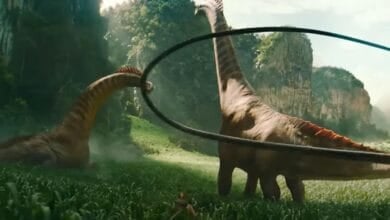Universal’s Success in Previews and Marketing
Universal Orlando has masterfully crafted a wave of excitement around its upcoming park, Epic Universe, which is set to open in less than two months. The anticipation has reached a fever pitch due to a strategic marketing campaign emphasizing sneak previews and limited early access.

The company has effectively created an environment where every tidbit of information, whether shared by Universal or unofficial sources, fuels further interest in the new destination.
The role of social media in building this anticipation cannot be overstated. Photos and experiences shared by fans and media have dominated platforms like Twitter and Instagram. Every shared image or emotional recounting of previews creates a ripple effect, attracting more interested visitors.
Universal’s savvy marketing has generated organic buzz, making it nearly impossible to turn on the television or scroll through social media without encountering something about Epic Universe.

Moreover, Universal has successfully engaged influencers and content creators keen to share their excitement and insights. While video and photography were restricted during official previews, some influencers have openly praised their experiences, even going so far as to highlight specific attractions, such as the much-anticipated Monsters Unchained: The Frankenstein Experiment.
This kind of praise from industry insiders positions Epic Universe as a game-changer in the theme park landscape, especially in comparison to Disney World’s recent offerings.
Comparison: Universal vs. Disney’s Rollout Strategies
Universal Orlando Resort’s strategic approach, especially concerning the previews and the buildup to the Epic Universe launch, starkly contrasts with Disney World’s recent rollout of attractions. Universal’s early and consistent engagement with the public has proven to be highly effective; they have kept the conversation going by regularly sharing snippets of information and creating a sense of exclusivity around their previews.

In comparison, Disney World has faced significant challenges with its latest attraction, Tiana’s Bayou Adventure. Technical failures, including ride breakdowns and animatronic malfunctions, marred initial previews. Such shortcomings dampened enthusiasm and raised criticism from fans, marking a stark contrast to the seamless rollout that Universal is orchestrating for Epic Universe.
The public reception of Epic Universe has created heightened expectations for Disney’s upcoming projects. If Universal continues delivering consistent quality, it may shift the industry’s focus, demanding that Disney reevaluate its strategies to reclaim its former position as the premier innovator in theme parks.
Key Features of Epic Universe Attractions
As the opening approaches, Epic Universe’s excitement is not just about the marketing—the attractions also fuel it. Riders and visitors can expect groundbreaking experiences, with eye-popping theming and engaging storylines that promise to surpass traditional park boundaries.
Attractions like Monsters Unchained are already heralded as potential game-changers in constructing immersive experiences at theme parks.

Epic Universe will reportedly incorporate innovative technologies that enhance visitor experiences. Integrating digital media with physical environments is a significant leap forward, providing guests with a highly interactive and immersive adventure. This is crucial to attracting theme park veterans and a new generation of visitors.
Feedback from early visitors to Epic Universe has been overwhelmingly positive. Many applauded the ambitious scale and creativity of the attractions. Attendees have expressed a sense of wonder and satisfaction, which is vital for the future success of any theme park.
Future Implications for Disney and Theme Parks
The rollout of Epic Universe serves as a case study for Disney and the broader industry. Disney World has undeniable pressure to adapt and innovate as Universal raises the bar. There is a clear lesson for Disney in understanding the importance of building anticipation and ensuring operational excellence before launching to the public.

Universal’s strategies may set new trends in the theme park industry, emphasizing the need for effective marketing and public engagement. The immediate correlation between successful previews and public excitement highlights that a robust publicity approach could redefine expectations for Disney and all theme parks globally.
In this competitive landscape, innovation will be more crucial than ever. Disney is faced with the critical task of evolving its attractions and experiences to meet increasing consumer expectations, especially following the promising rollout of Epic Universe. Failing to do so could further shift attention—and visitors—towards Universal Orlando Resort as it ushers in a new era of immersive entertainment with its Epic Universe. The stakes are high, and Disney is pressured to respond and adapt to maintain its relevance in an ever-changing industry.





